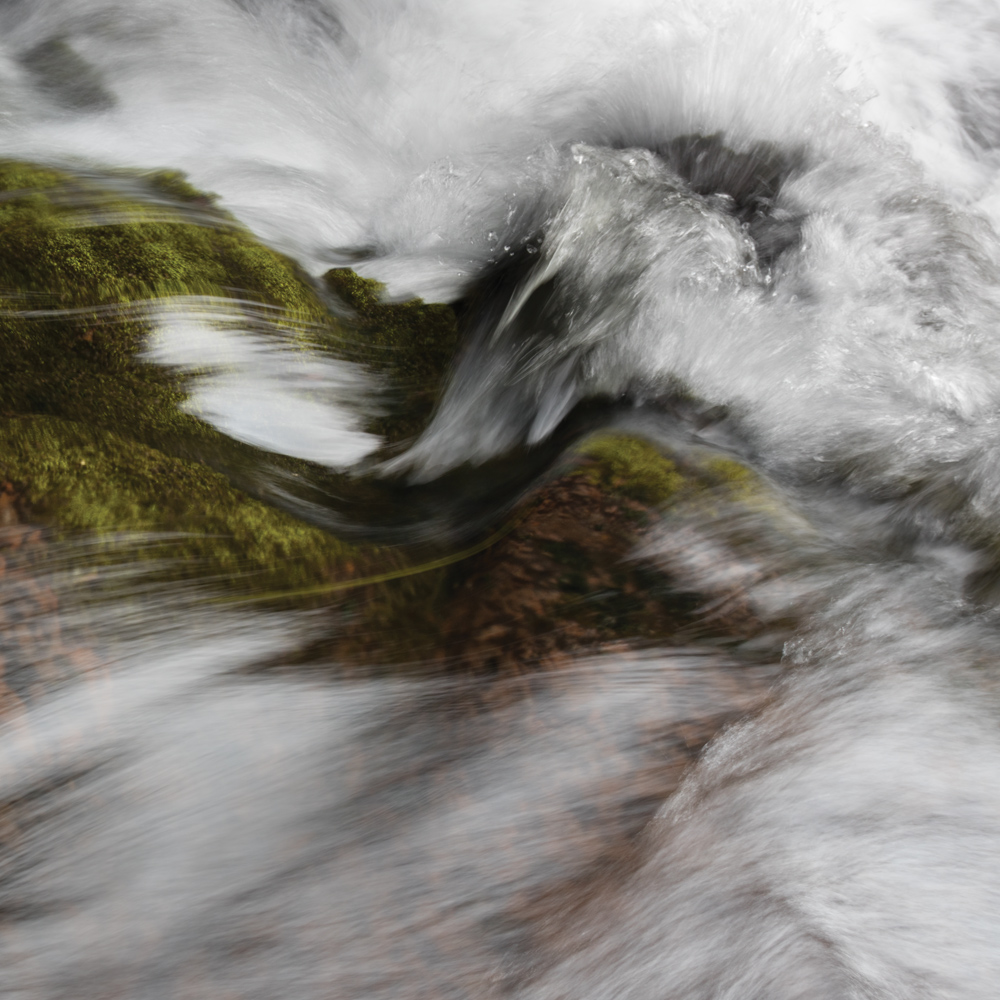jab·ble | /ˈjabəl/

You can usually tell where two currents meet from the tell-tale jabble. If you throw a bunch of stones into a pond, the ripripples* running into each other will make the surface jabble. Running over rapids, the water will jabble against pockets of backwash. It sounds like a nonsense word but is in fact a bona fide Scots term for the agitated movement of water – you can even use it in Scrabble.
A gently nudged cup of tea may be said to jabble, as can a rain-hammered puddle. The heaving seas may jabble against the rocky shore, as described by Scottish author, poet and priest George MacDonald, who penned in his 1897 novel Sir Gibbie:
“… in wi’ a’ the jabble o’ the jaws again’ the rocks …”
“… in with everywhere the jabble of the waves against the rock s…”
Jabble’s origins are obscure, but it is likely onomatopoeic and possibly related to jaup – a Scots term for a splash or splatter, particularly of dirty water. It may also be related to jirble, meaning to spill over/pour unsteadily or to play freely in and around water, as in ‘the children jirbled about the burn’.
Just south of the Scottish border, rippling water may be said to be shirring, a term that elsewhere usually refers to the stitched gathering of fabric. A cat’s paw is commonly used to describe someone duped into doing another’s dirty business, but for boaties, cat’s paws are the localised patches of disturbance caused by gusts of wind travelling across the water. The Victorian poet Algernon Swinburne wrote of how the “wind’s feet shine along the sea”.
* Ripripple was coined by James Joyce in Ulysses.
Introduction Aeolian Alpenglow
Benthos Crepuscular Crispate Crown shyness
Desire lines Dreich Endragoned Edgelands
Frondescence Fumarole Gluggaveður Gossamer
Karst Komorebi Lawrence Long acre
Machair Monkey’s wedding Moonglade
Psithurism Quartz Rakuyou Roaring forties
Snag Soft estate Specular, diffuse and pellucid
Spoondrift Steam fog Swash zone Sylvan